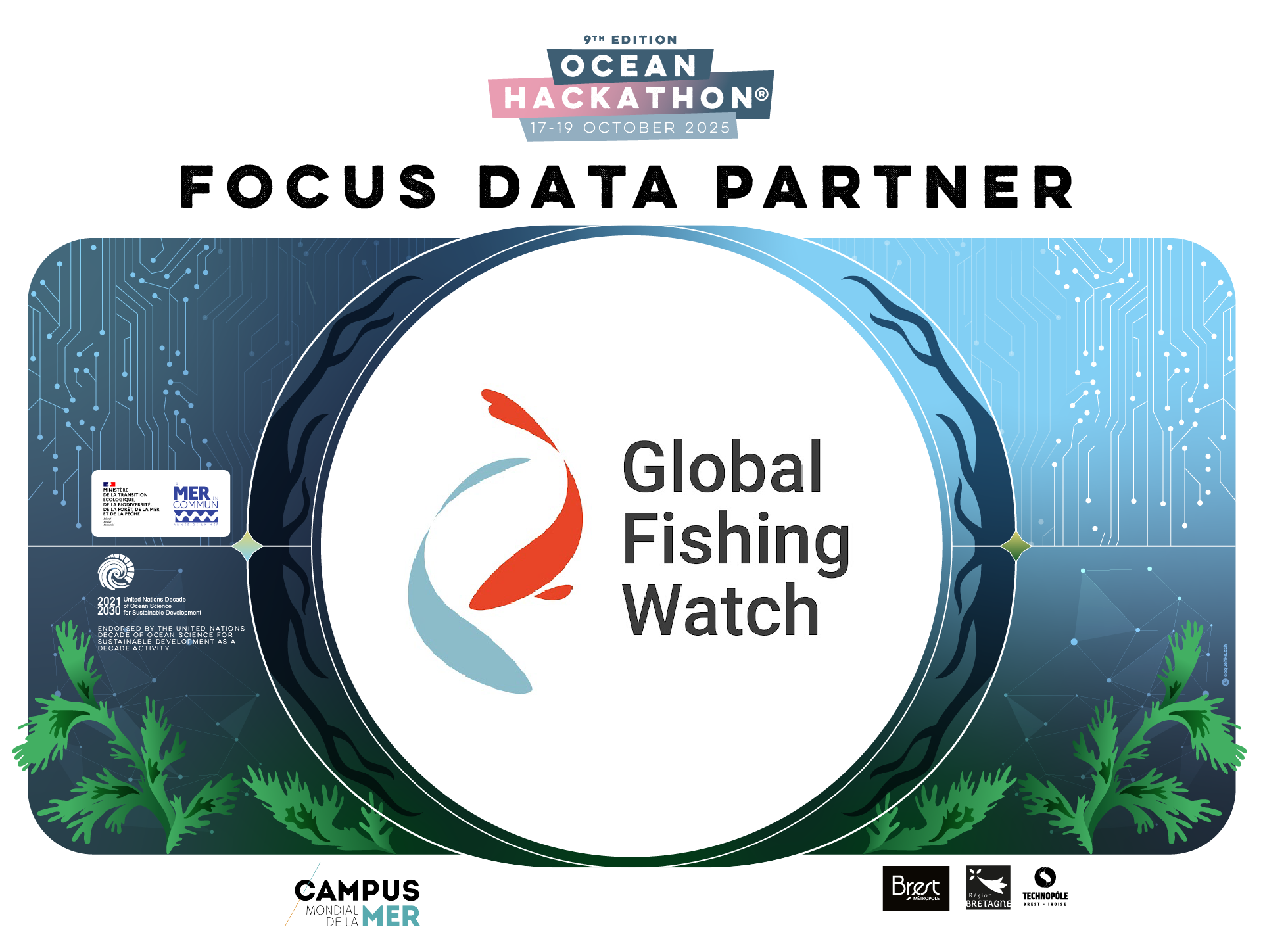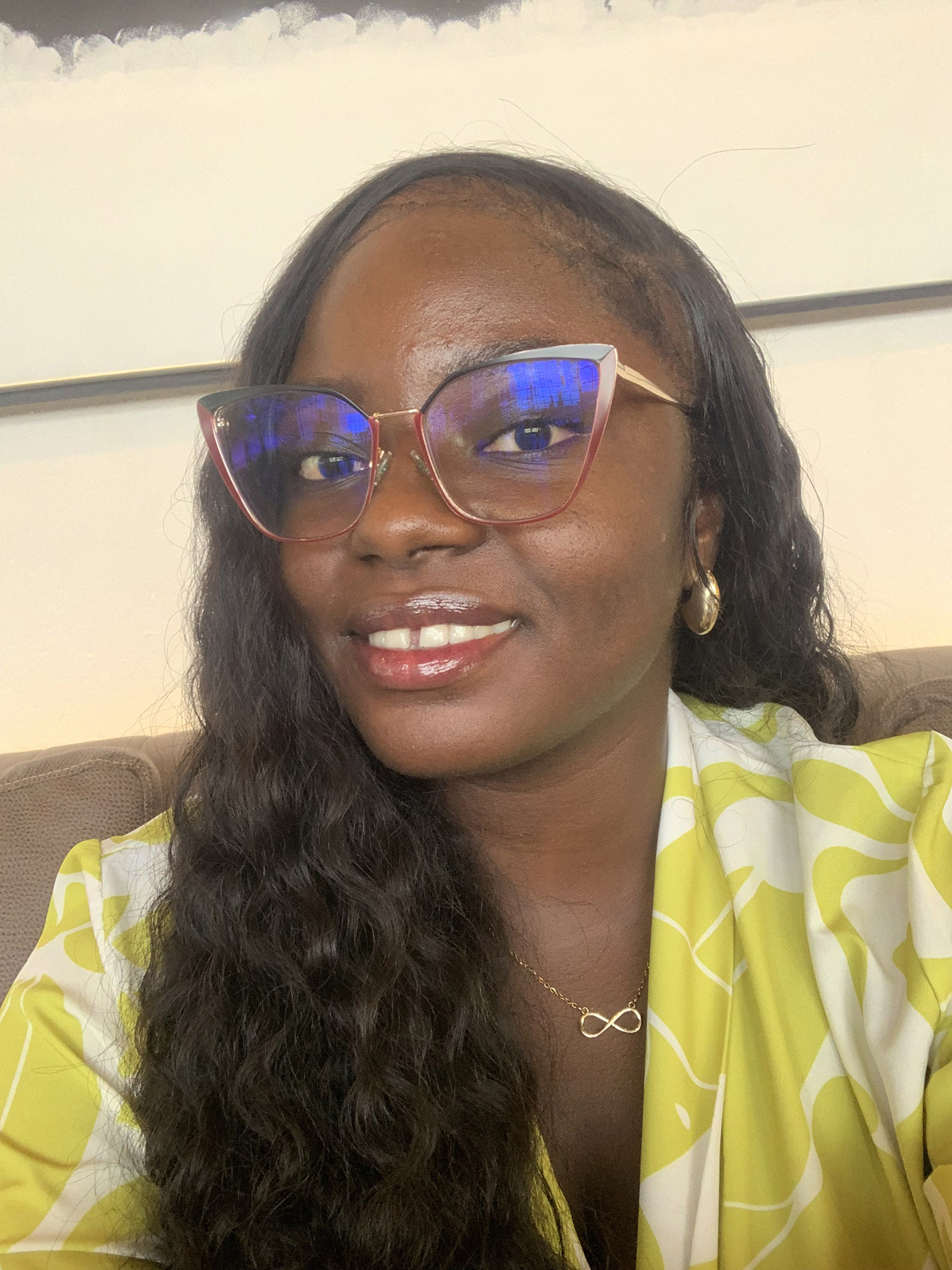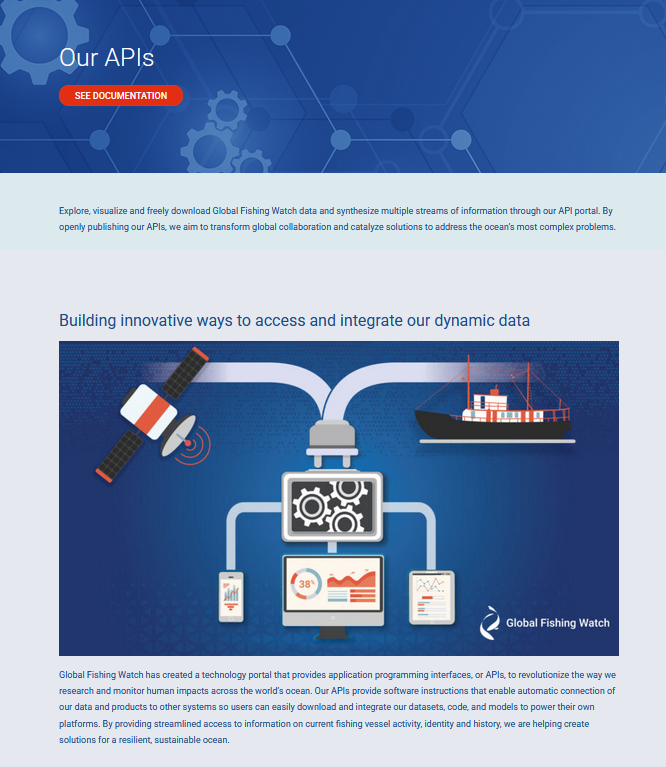GLOBAL FISHING WATCH: questions to Yaa Kusi-Fordjour
- How do we manage our ocean? What about human activity at sea? These questions are perfectly in line with the scope of Ocean Hackathon®. Global Fishing Watch is contributing for the second time to the event as a global data partner. This non-profit organization explains its activities, its involvement in the event, and shares its recommendations for future editions. Here is the interview with Yaa Kusi-Fordjour, Technical Success Manager for Global Fishing Watch’s APIs.

Could you tell us a bit about your background and what you do?
I am Yaa Kusi-Fordjour, Technical Success Manager for Global Fishing Watch’s APIs. With a background in software engineering and product management, I support partners in accessing and utilizing our open and free datasets through products such as our API and Python/R packages. I help teams apply our data to real-world challenges, from sustainability to ocean monitoring.

Yaa Kusi-Fordjour Could you introduce “Global Fishing Watch,” the international non-profit organization you represent?
Global Fishing Watch is an international non-governmental organization that seeks to advance ocean governance through increased transparency of human activity at sea. By creating and publicly sharing open-source map visualizations, data and analysis tools, we enable scientific research and drive a transformation in how we manage our ocean. We generate new knowledge by using cutting-edge technology to turn big data into actionable information. We share that information publicly, and for free, to accelerate science and drive fairer, smarter policies and practices that reward good behavior and protect biodiversity, fisheries and livelihoods. By 2030, we aim to monitor and visualize the impact of ocean-going vessels, both industrial and small-scale, that are responsible for the vast majority of the global seafood catch.
You are a recurring data partner of Ocean Hackathon® and took part in 2023. Why did you decide to join this adventure?
We joined Ocean Hackathon for the second time because it aligns deeply with our mission of making ocean data open, transparent, and usable for impact. Global Fishing Watch exists to advance ocean governance by publicly sharing human activity data at sea. Since the Ocean Hackathon is a global event, it also presents a unique opportunity to make our global datasets accessible across regions and help teams develop solutions that address local challenges. By participating, we not only contribute our data for free, but also get to see how creative teams apply it, bridging innovation and mission, supporting new ideas, and amplifying the value of open ocean data
What does Ocean Hackathon® bring to your organization?
Ocean Hackathon gives Global Fishing Watch a unique opportunity to put out open data into action. It’s one thing to publish datasets and another to see innovators, students and civic actors build real prototypes and test use cases. Through the hackathon, we can learn new insights and novel applications of our data in diverse contexts, strengthen our relationships with local communities, challenge owners and partner cities, amplify visibility of open ocean data, foster capacity building, drive alignment between Global Fishing Watch’s mission of transparency and sustainability and real-world impact at local levels. Participating keeps us grounded in the ecosystem of ocean innovation and helps ensure the work we do is useful, accessible and scalable.
What is your feedback on this event?
Ocean Hackathon brings together data innovators and local stakeholders to co-create actionable solutions. To strengthen future editions, I recommend that challenge owners and city advisors collaborate earlier with data providers. This advanced alignment could help reduce delays, clarify which datasets will be necessary, and make both on-site and virtual support more effective. It would also be helpful if data providers could share the available datasets with local organizers in advance, so they can circulate them to challenge owners early on and speed up the preparation process.
What kind of resources, tools, and datasets do you make available to the teams?
We’re providing open access to all datasets available via the Global Fishing Watch APIs and our official data packages. This includes AIS-derived datasets such as apparent fishing effort, vessel presence, and SAR detections.. Teams can access these through our 4Wings API, Vessels API, and software packages like gfwr (R) and our Python client. Documentation and example queries will also be shared to support teams in using these tools effectively. Additionally, we will enable our curated datasets available in the Data Download Portal for any user to download. For context on the datasets available in each of our products, we recommend that participants refer to this link here.

From Global Fishing Watch Website It appears that Global Fishing Watch was present on-site at the local edition in Peniche. Could you tell me more about this?
On the Peniche edition in Portugal, one of our colleagues, Chris Homberg, served as a data coach. We remained available to support other local editions remotely through the Discord channel and continue to offer technical guidance to participating teams as needed.
Can you tell us about the geographical coverage of the data you’re providing?
Global Fishing Watch provides global coverage through its open datasets and APIs. Our data spans all ocean basins and includes exclusive economic zones (EEZs), the high seas, and key coastal regions. The datasets available, including AIS-based fishing effort, vessel presence, and port visits, are derived from satellite data and updated regularly to provide timely insights. This enables participants to explore vessel activity patterns, fishing hotspots, and maritime trends across virtually any marine area of interest.
Beyond Ocean Hackathon®, is there any news or upcoming events you’d like to share with us?
We are actively updating our packages and soon the Bulk Download API with fixed infrastructure will be available in our Python package, as well as the Insights API will be available in the gfwr (R package).
- Published on 10/28/2025


